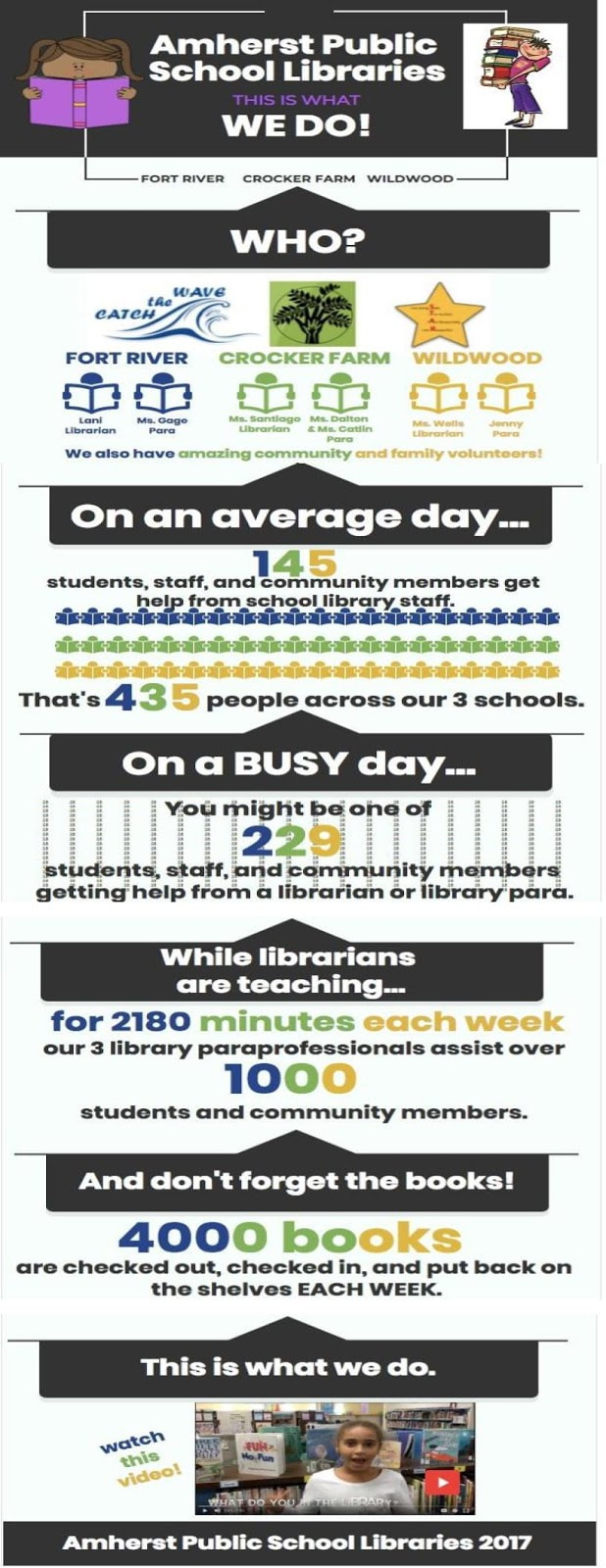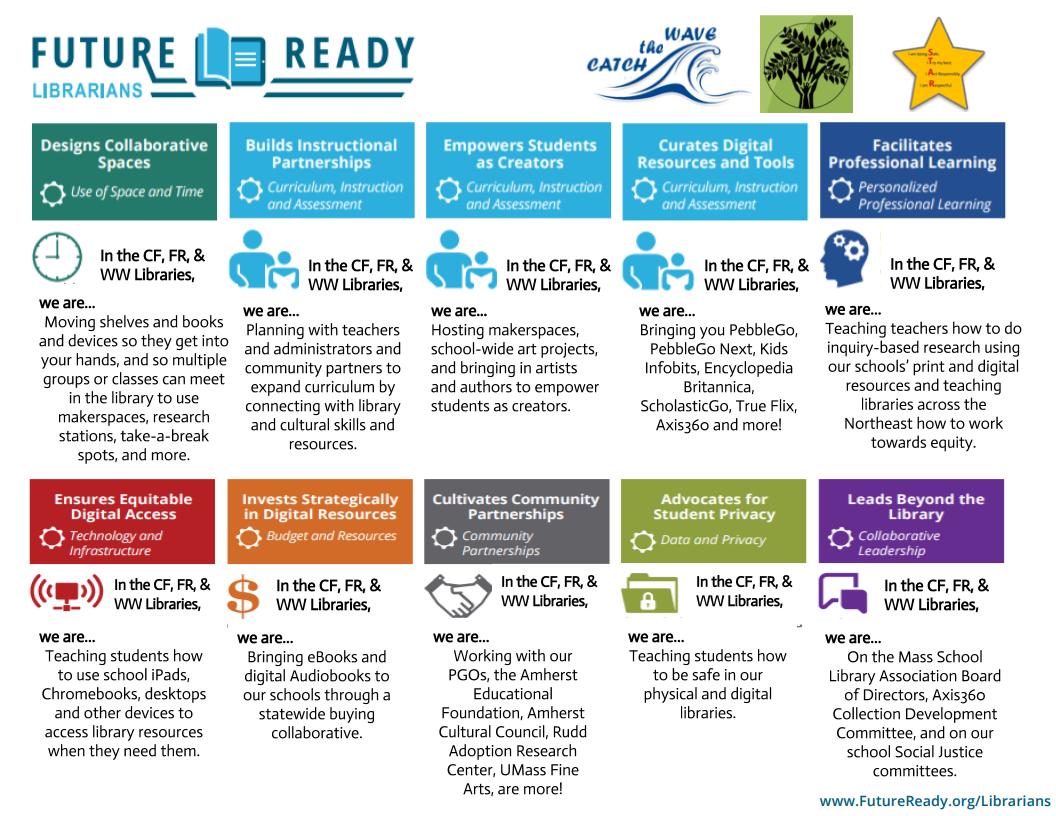Patsy Divver is the School Librarian at Millis Middle/High School
Several librarians offered simple suggestions for “showing our stuff”:
Lisa Bertram from Carver Middle/High School has a superintendent who loves to Tweet. As she notes, “I have sent him pictures of new displays, a class coding with Ozobots, students listening to book talks...he always tweets them out!” Using Twitter and Instagram, as well as school Facebook pages, is a quick way to connect with your administrators and the community, too. If you don’t have accounts, now’s the time to start one.
When we think of advocating to administrators and parents, don’t forget to encourage students to “shout out” about programs and activities, too. Sheila Geraty, Library Director at Brookwood School in Manchester, MA, runs book fairs in both the fall and spring. During those events, she invites students for breakfast, music and books before school. It’s a great way to advertise the fair and gain student support. If you don’t already have a student library group, whether for a book discussion or to help with projects, it’s extremely valuable. Student voices keep our libraries current and elevate the impact of annual reports, as well as NEASC visits.
Although these ideas all seem viable and easy, sometimes it just takes a bit of “courage” to speak up. Earlier this year, Massachusetts Department of Education Commissioner Jeff Riley came to visit Millis Middle School. Even though the round-table discussion was held in the library, the visit focused on core-subjects classroom activities, thus the library wasn’t directly involved. So, I had to step up and make some noise.
- Step 1: Planning for the event. As soon as I heard the Commissioner was coming into my library, I contacted people involved in advocacy. (Thank you, Anita Cellucci, Robin Cicchetti, Judi Paradis and Amy Short for your advice and help!) Both Judi’s talking points (https://libguides.salemstate.edu/ld.php?content_id=43691457) and the Massachusetts School Libraries study gave me ideas for a quick connect with Commissioner Riley (https://mblc.state.ma.us/programs-and-support/youth-services/school-libraries-study.php).
- Step 2: Shove the “shyness” away - and go face to face. I introduced myself as guests arrived. Then, after listening to discussions and interjecting where I could, I waited. As soon as the group broke for lunch, I approached the Commissioner and identified myself as the school librarian (he acknowledged and admired the library). I shared that I was active in MSLA (he was familiar with our group). Had he read the Mass Library Study? Yes, he had, and (to paraphrase), in light of the need for students to be aware of our resources and fully understand them, he agreed that the role of the school librarian is critical in our schools.
- Step 3: Send out follow-up thanks! Keep that connection alive and be sure to copy your principals and administrators. Direct interactions may be brief, but the connection can be lifelong. (Two of the accompanying state representatives on this visit greeted me by name - from a reading event we’d done twenty years earlier!)
So don’t be shy - it’s not effective. Don’t be obnoxious - you won’t be heard. Be proud of what you are doing, what you’ve accomplished, and what you have planned. You’re not alone - even as a singleton. Reach out, then speak out. What you have to share may be the exact idea another colleague needs to succeed. Good luck!



